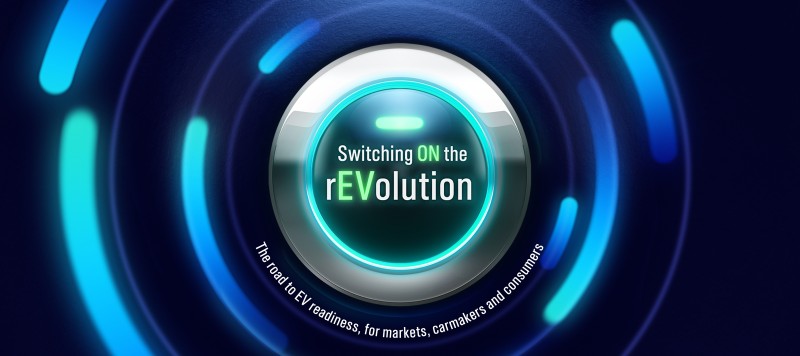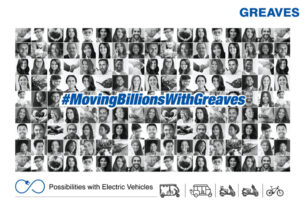Castrol has launched a new global study: ‘Switching ON the rEVolution: The road to EV readiness for markets, carmakers and consumers.’ The in-depth report reveals that an overwhelming majority (97%) of surveyed global automotive executives are confident of meeting government-imposed phase-out dates for internal combustion engine (ICE) vehicles. Despite this, they don’t necessarily have a clear path to get there: only 40% in the survey feel that their company is currently ready to transition from ICE vehicles to EVs1.

Sharing his thoughts about the EV market in India, Sandeep Sangwan, Managing Director, Castrol India Limited said, “We are excited about electric mobility and what the future holds for the automotive sector. In India, there is a lot of buzz around electric vehicles, but EV car sales currently account for less than 1% of total new car sales[2]. Considering that penetration of cars is still low in India and is poised to grow further, we foresee continued demand for ICE vehicles till 2040.”
Speaking about Castrol India’s offerings in the EV space, Sandeep Sangwan added, “In India, the transition to EV’s might take place sooner in the two-wheeler and three-wheeler space, compared to four-wheelers. Castrol India is keen to support the transition to EVs and we are working with our industry partners to bring forth the next generation of technologies. Products such as Castrol ON EV fluids will have an important role to play and we are exploring technology collaborations with two-wheeler and three-wheeler OEMs. Besides product offerings, we are also ramping up creation of a Service & Maintenance eco-system that can serve EVs and are expanding into adjacent categories such as car care products that are relevant for EVs as well.”
The study reports that car manufacturers are focused on overcoming these challenges, with almost two-thirds (66%) of global automotive executives stating that the transition to EVs is a top priority for their organisation. This is also reflected in how R&D spends are changing. The study found that in 2015 an average of just 11% of R&D spends were focused on EVs, but this has almost doubled to 21% today, and automotive executives anticipate it will reach 31% by 2025, almost a three-fold increase over 10 years. If hybrid vehicles are also considered, the Castrol survey predicts that by 2025, over 70% of their R&D spend will be focused on EVs and hybrids[1].
Closer home in India, consumers mindsets are shifting, with 44% of all surveyed consumers considering an EV for their next vehicle purchase. 55% are still considering an ICE vehicle be it diesel or petrol powered. Amongst consumers in the report who have already made the switch, 100% would consider an EV for their next vehicle purchase.
Castrol India currently supplies EV fluids to Tata Motors and MG Motor for their electric cars in India and has recently obtained approvals from BYD India for the use of Castrol fluids for BYD’s first all-electric MPV in India.
Factors accelerating the transition to EVs and insights from Indian consumers
Most survey participants believe that governments have a critical role in the transition to EVs. Government-mandated ICE phase-out targets are cited as the number one factor accelerating the industry’s transition, according to 63% of global automotive executives in the study. Net zero targets are also a significant factor, with 57% of the automotive executives stating that they are an important driver.
When it comes to consumers, the study finds that contribution to lower air pollution in urban cities is the most influential factor in persuading current ICE and hybrid drivers to make the switch (cited as important by 92% of consumers in India), followed by the fact that EVs emit lower carbon emissions than petrol or diesel-powered vehicles (91%) and the notion that EVs have lower running costs (89%). Moreover, 74% of all consumers in India believe that the overall cost of an EV – when tax, fuel and maintenance costs are considered as well as upfront price – is lower than an equivalent petrol or diesel vehicle.
Roadblocks on the road to widespread EV adoption
According to the research, the biggest barrier slowing the industry’s transition to electric vehicles is the high cost of batteries with 56% of global automotive executives citing this as a concern. The next most significant barriers were found to be the availability of charging infrastructure (43%) and a lack of tech talent (40%). Battery thermal management is also a concern with many instances of fires reported in electric vehicles. In August 2022, bp announced its plans to invest up to £50 Million (Rs. 500 crores) in Castrol’s Global Technology Centre in the UK to help advance the development of leading fluid technologies and engineering for hybrid and fully battery electric vehicles. This will help bring the industry closer to achieving the key tipping points for mainstream EV adoption.
In India, the biggest concern for consumers is around charging infrastructure. 73% of non-EV drivers in India believe that ultra-fast charging is not yet prevalent enough. Moreover, despite the majority agreeing that the overall cost of EV ownership is lower than a petrol or diesel car, many consumers (67%) are still undecided due to a perceived higher upfront cost. A lack of choice of EV models on the market was also found to be a deterrent (cited by 72% of consumers).
Switching ON the rEVolution
To accelerate the transition to electric vehicles, the industry needs to work together to overcome these roadblocks. Governments, infrastructure providers, car manufacturers and suppliers will need to collaborate closely and effectively to enhance the reliability and availability of charging infrastructure, improving the battery life and mileage range of vehicles, and reduce the upfront cost. Castrol is committed to working with industry partners to accelerate the transition, helping to switch on an electric future. Castrol ON EV Fluids aim to bring the industry closer to overcoming the challenges faced by helping EVs go further1, charge faster2 and last longer3*.




